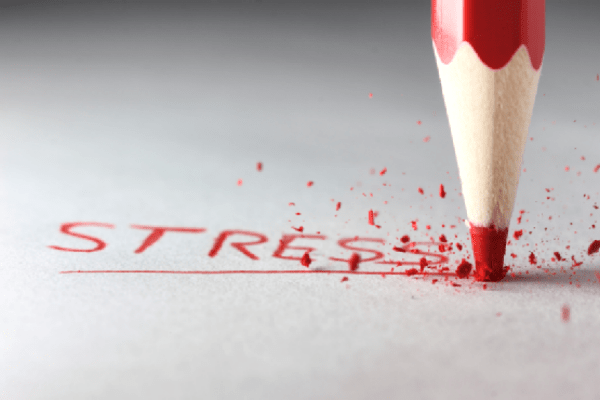Reprinted with permission from Dr. Miller.com.
If your reactions to the constant pressure, demands, and continual threats of your external environment are producing chronic stress and persistent muscular tension, you need to learn how to de-stress. If your nervous system is interpreting your current social situation as an immediate threat to your survival, you need to learn to relax, even if the clock is ticking in front of you and there are deadlines ahead.
In my book "Deep Healing" I wrote, "I help my patients see that an exaggerated degree of tension is harmful and inappropriate. Actually, relaxation is not about something we do; it is about something we don't do. It is what is left over when we allow ourselves to stop doing everything we didn't really need to be doing in the first place. Like the stars in the sky, that are invisible when the sun is out, the relaxation state is always there beneath the turmoil."
When we feel we are in danger or believe we have to respond to some demand, an inner pressure to perform arises within us. The tension of our bodies, the anxiety of our emotions, the obsessive racing of our minds, are all futile attempts to solve problems which are either imaginary, long past, or not yet present. One is reminded of the quote by Mark Twain: "I'm an old man and have known a great many troubles, most of which never happened!"
Seven Steps to Help You Relax and Let Go
:
1
. For one moment, become aware of the fact that at this instant there is nowhere to go, nothing to do, and no problem to solve
.
2
. Recognize that time is on your side
; it is your friend. Start with a relaxation tape like "Healing Journey," "Letting Go of Stress," or "Relaxation and Inspiration". These tapes will lead you to a profoundly different experience of time. You will learn the secrets of relaxing body, mind, and emotions and how to come completely into the moment. Practice this on a regular basis. Next, you must carry this altered perception of, and relationship with, time along with you
.
3. Become a "One-Minute Meditator.
" Relax and attune yourself to your breath. Breathe in slowly, then breathe out and pause. Sink into the pause after you breathe out and before you breathe in again. Although it may take 10 or 15 minutes initially to enter a truly deep relaxed state, with training, this can be accomplished in a minute or two. Direct your awareness away from whatever is going on in the outside world, tune into the out-breath, and let go. This sudden awareness of Self creates a new relationship with the environment and a new, more comfortable sense of time. You experience the world differently, the quality of your work improves, and your cardiovascular system is protected from illness.
4. Re-examine your priorities
. Make a list of the priorities in your life, then make a list of what you spend your time doing. If you're like most people, there's quite a discrepancy. We're busy responding to urgent, unimportant things rather than responding to important things that may not appear to be urgent at the moment. If your schedule is too crowded with other things to afford you time to do the things you really want to do and that really are your priorities, then you must make a commitment to change. And one of the things that has to go on this schedule is time to center and experience the eternal moment. In other words, time for deep relaxation, physical exercise, and quality time with someone you care about. All these will give you a fuller sense of life, more comfort with being, and less of the hurry sickness.
. Stress is cumulative. The more changes we have to deal with, and the less time we have to deal with them in, the more stress is experienced by body, mind, and emotions. Most people don't take the time to drain away stress because they don't know how, and tomorrow's stress is added to that of today. It is this accumulation of stress that gives rise to the curious phenomenon that if you measure the number of changes in a person's life throughout the year, you can predict how likely that person will be to become ill. Bottom line? On a daily basis, use the stress reduction tapes, exercise, and let go of rushing and mindless, unimportant activities. Take charge and wake up to each precious moment.
6. Reinstate the relaxation cycle
. Understand that stress is just one half of a normal, healthy life cycle. The rest of the cycle involves relaxation. Normally, there is stress followed by relaxation followed by stress, etc. The relaxation phase allows nerves to re-polarize, chemicals to be metabolized, emotions to rest, and the psyche to remember itself. Without this, tension, anxiety, anger, frustration, etc., rise, and the body begins to experience the inner fight-or-flight reflexes that enabled it to survive in prehistoric jungles. Because we can't run away from our stressors the way our cavemen ancestors could, we perceive that somehow we are falling behind. The relief comes when we reinstate the relaxation cycle. Deep relaxation and meditation help us do this.
7. Relax before each challenge
. This simple technique keeps stress at a minimum, gives you a sense of success, and reinforces a calm, focused center for dealing with stressful situations. You can get fit for stress just as you can get fit for physical challenges. When you are fit, you perform optimally and really enjoy the experience. Remember, stress is not something that happens to you; stress is something you do with what happens to you.

